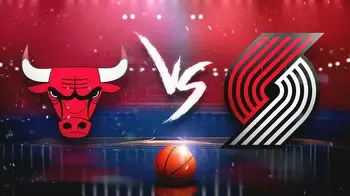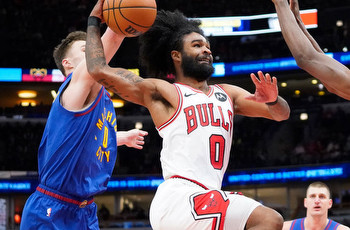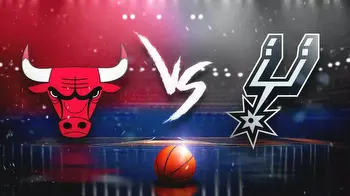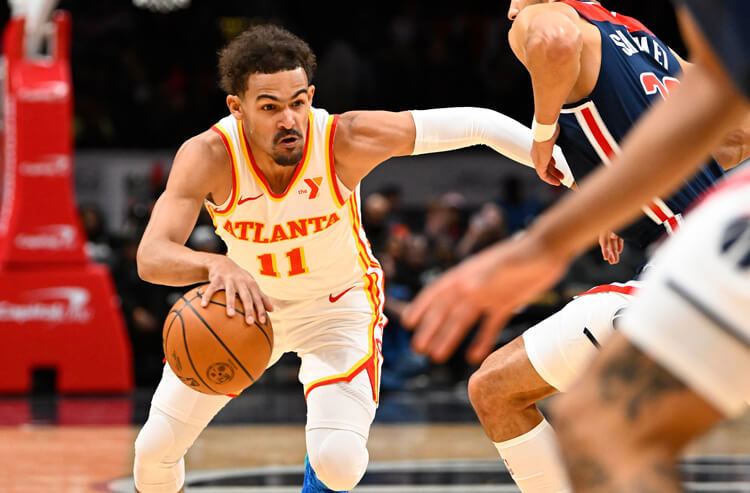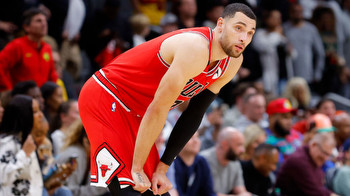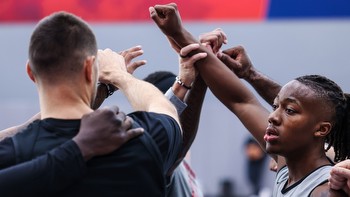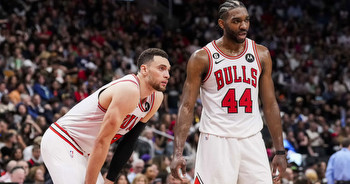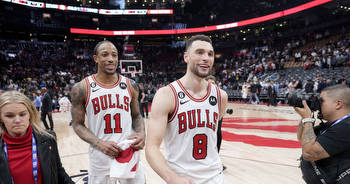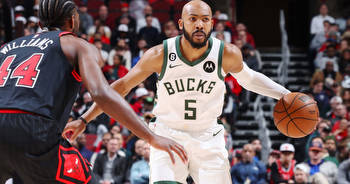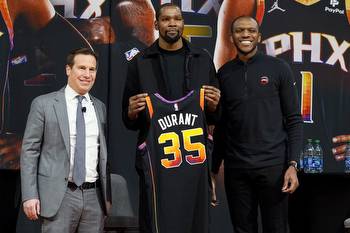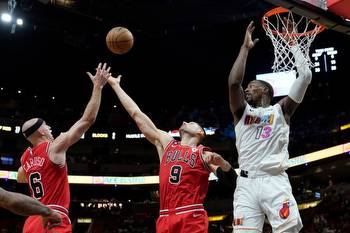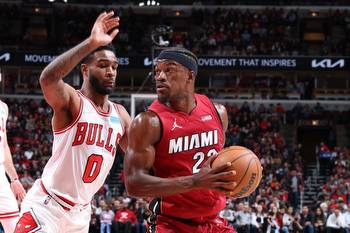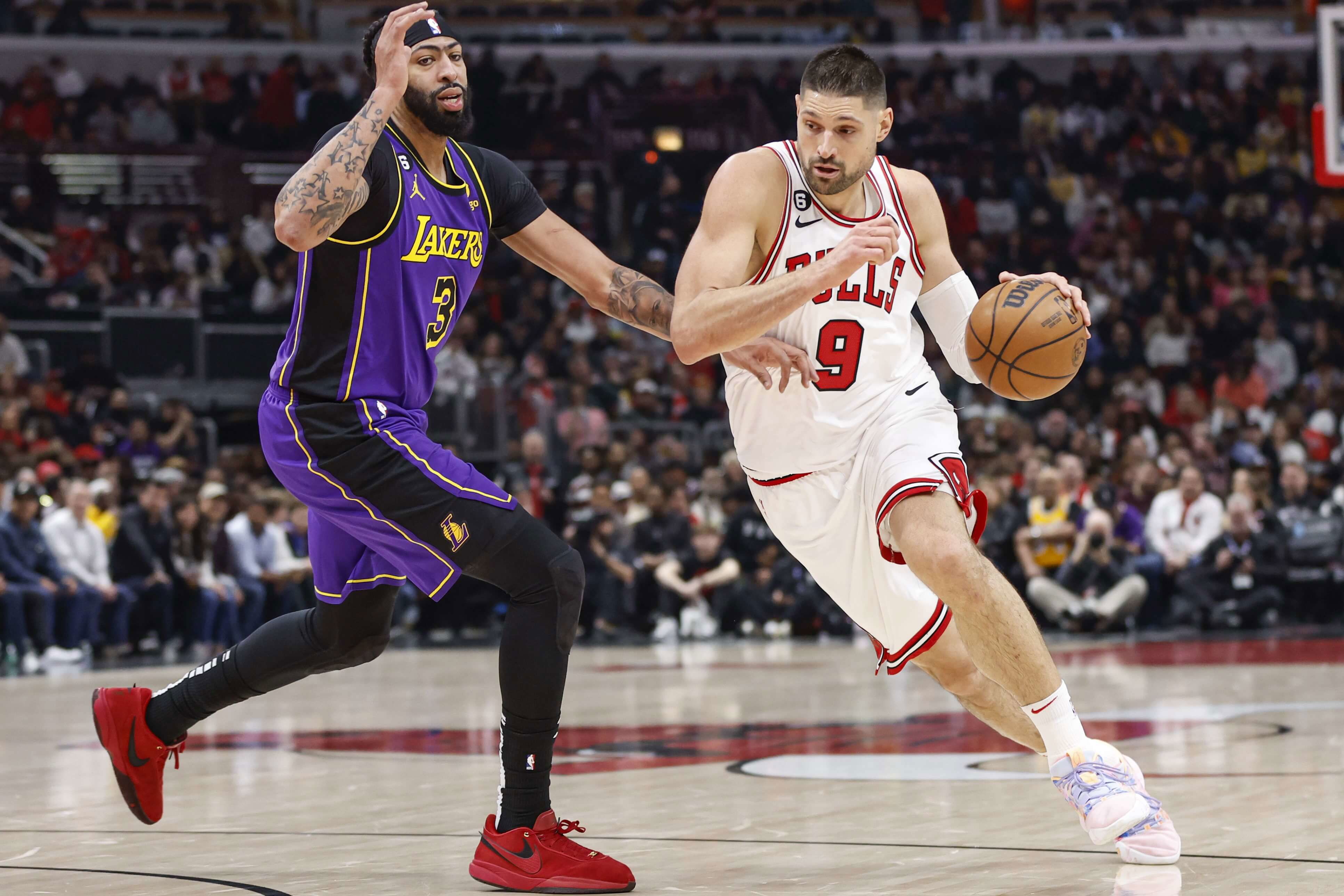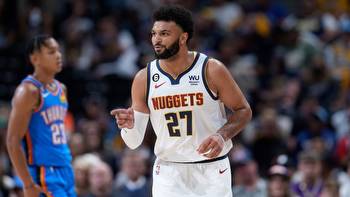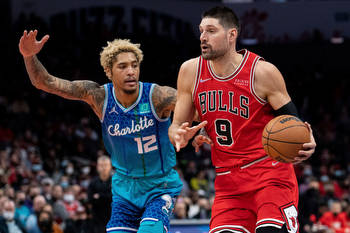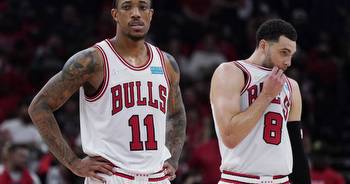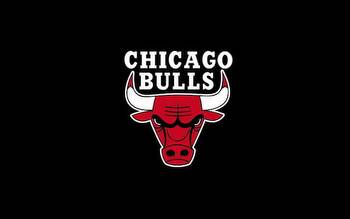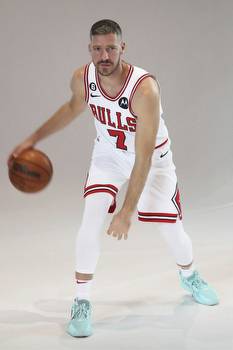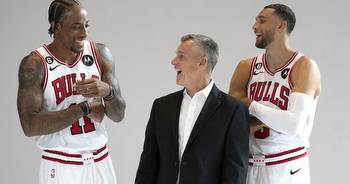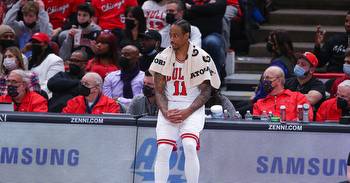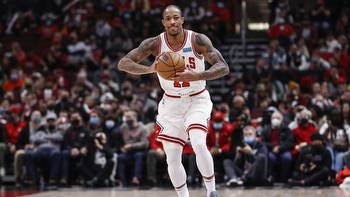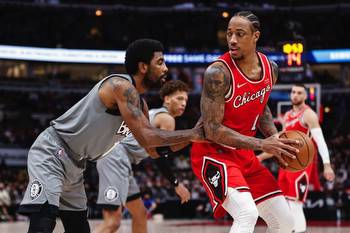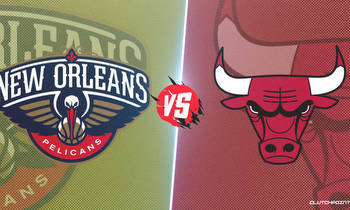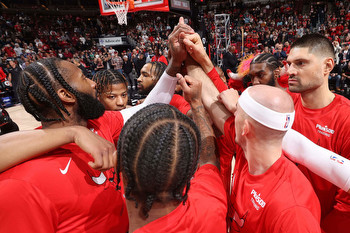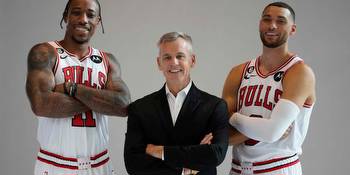How Chicago Bulls plan to be better in 2023-24 season
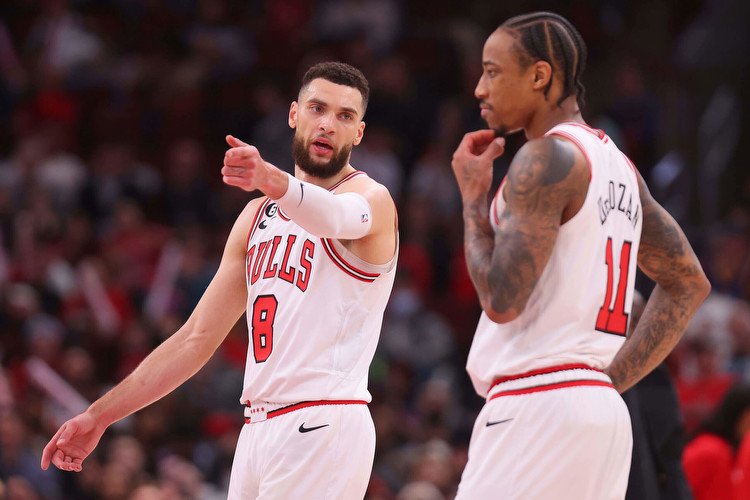
Days after two conference rivals took big swings to bolster their chances of a championship, it’s going to be hard for Chicago Bulls chief basketball executive Artūras Karnišovas to inspire confidence in his club at the team’s media day Monday.
One could argue Milwaukee, which acquired Damian Lillard, and Boston, which scooped Jrue Holiday, already were better than the Bulls. But what good would it do the Bulls to craft a better season if the gap has widened between them and the conference heavyweights?
It’s Karnišovas and coach Billy Donovan’s job to sell the vision when they sit down in tandem to kick off the season. But it’s up to the players to show how much better they can compete this season.
During a 40-minute interview with WSCR-AM 670 The Score alongside Bulls general manager Marc Eversley recently, Karnišovas gave a glimpse into his talking points for why the Bulls could be better. Player development was listed as a critical component. But beyond internal growth from the team’s young players, a list of additional improvement areas were cited. Here are the four factors Karnišovas named and is expected to repeat Monday when he sets the stage for the season.
Emphasis on shooting
It’s been a problem for the Bulls the past two seasons. They finished last in attempts in back-to-back seasons. They understand the problem but have been unable to solve it. Free-agent acquisitions Jevon Carter and Torrey Craig add shooting components from their positions. The Bulls also re-signed Nikola Vučević and Coby White. With Zach LaVine and Patrick Williams, the Bulls feel they have plenty of weapons.
The focus will be on the roster’s weapons taking more shots. LaVine could average 12 3s this season. DeMar DeRozan almost certainly will flirt with his career-high, the 3.6 per game he attempted in his final season in Toronto. All others who are open will be encouraged to launch.
“We’ve got to take more 3s,” Karnišovas told The Score. “Because going into every game last year, you go minus-8.5 points per game. That’s hard to make up every game.”
Playing a faster pace
The Bulls finished 24th in offense last season, which came as a surprise for a roster that features LaVine, DeRozan and Vučević. To kick the offense into high gear, the Bulls want to run.
“Playing a little faster is going to create more 3-point attempts because a lot of 3-point attempts created in our league are on the fast break,” Karnišovas said. “Because those are open 3s.”
The problem: turnovers.
If the Bulls get careless while playing faster to generate more efficient offense, there’s no point. How well the players adapt to more tempo will be a key early factor. If the Bulls can successfully incorporate more speed, it naturally unlocks easier offense. But the style can’t negatively impact their ball security or their defensive effectiveness.
Better passing
For the Bulls, moving the ball better doesn’t just mean finding the open man. They also need someone to generate good looks.
That means someone must first be crafty enough to consistently slither into the paint. It was a sore spot for the Bulls last season and the reason so much of their offense is perimeter-oriented.
“The way you create 3s is you’ve got to run or you’ve got to get to the paint,” Karnišovas said. “And we didn’t do a very good job last year getting to the paint. So what we’re going to try to do this year is getting into the paint and kicking it out.”
The Bulls also want to use Vučević more as a facilitator and make quick decisions with the ball rather than hold it and rely on iso ball.
Building relationships
Karnišovas is betting on Bulls players coming back with a better bond than they had last year. The hope is better relationships within the team will lead to better performance.
It’s why the Bulls will fly to Nashville, Tenn., following media day duties and hold training camp remotely. They felt they needed to mix it up, to create an atmosphere from the start where players, in theory, will be on one accord.
“Everybody’s together,” Eversley said. “We’re in one place together. We’re going to go to practice together. We’re going to eat together. We’re going to have team functions together. We’re going to program the week so that they do everything together. From Day 1, find a common purpose, a common bond, and build up from that.”
Eversley said it was clear at the end of last season that the Bulls weren’t bonding, that the mood felt more like players were just showing up to work.
Asking this core group, now in its third season together, to achieve a stronger bond while they also battle inconsistency and the weight of what could be their final season together feels like asking a lot.
But it’s what the Bulls believe they must do to take another step.
“To challenge each other you’ve got to know each other well,” Karnišovas said, “and you have to have relationships.”
